A Scottish woman was walking up her local beach one Sunday evening when she saw something absolutely giant a few hundred yards ahead of her.
At first, because of its enormous size, she assumed it was a whale, but as she got closer, she realized that it was actually a 24-foot shark. Of course, finding the shark was a surprise, but the removal was even more dramatic.
Scottish Woman Finds Basking Shark on the Beach

Yolanda McCall was taking a nice Sunday night stroll on Maidens Beach near her home in Ayrshire, Scotland when she saw an extremely large animal bobbing in the shallow water.
McCall later told the press, “The creature was bobbing around in the water, and we couldn’t tell if it was dead or alive. I wanted to try to help it. If it was alive and floundering, I put on a wetsuit and got in the water to check.”
Finding Out the Animal Was a Shark
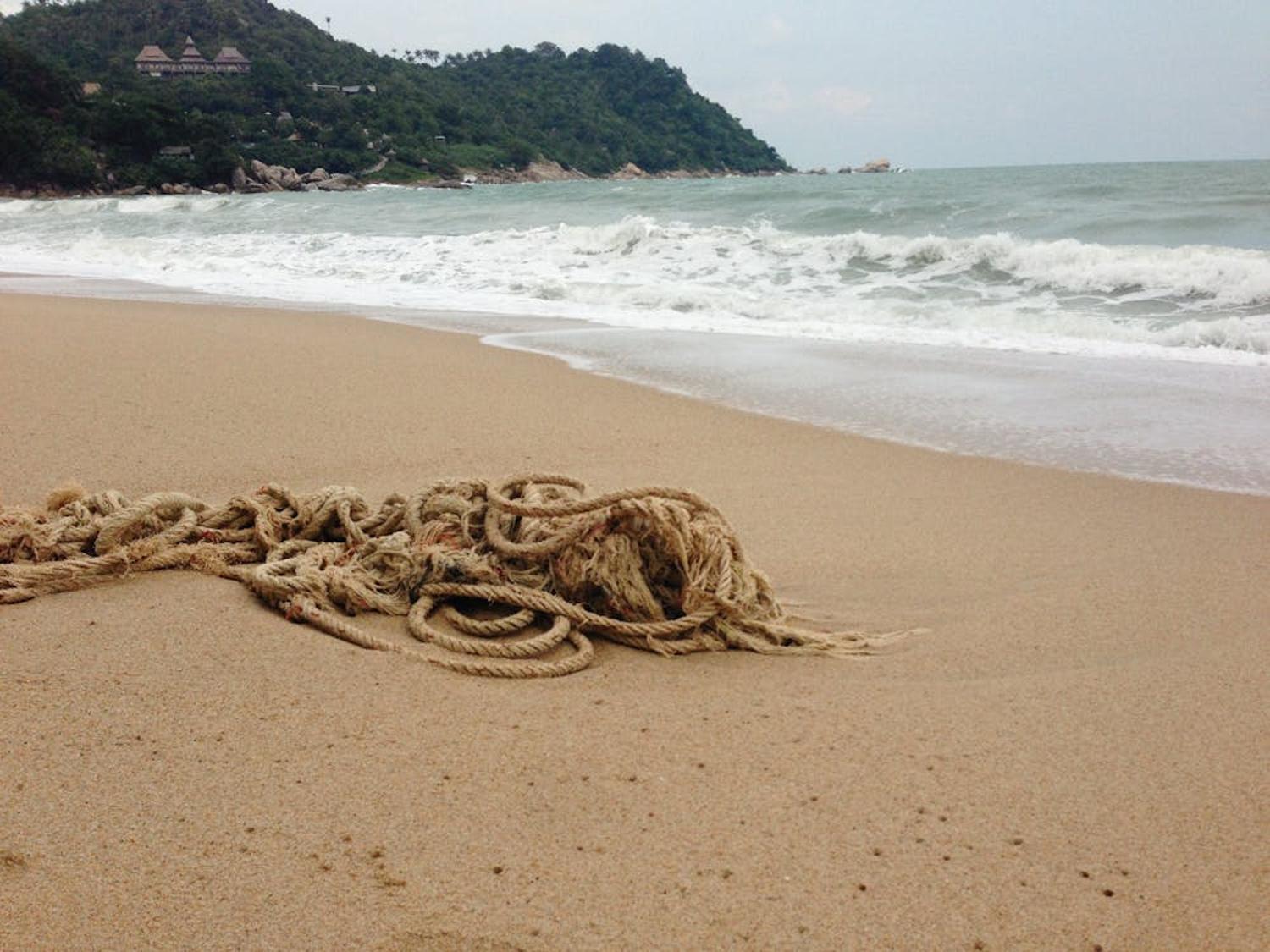
After donning her wetsuit, McCall approached the animal she thought was a whale, only to find out that it was actually a shark. However, she also immediately noticed that the animal was already dead.
She explained, “Sadly, it was dead, but it looked very complete, a recent death. It was tangled in a long loop of rope in its mouth and caught around its tail…Maybe it got tired trying to free itself.”
McCall Wasn’t Shocked to See a Shark in the Shallow Waters
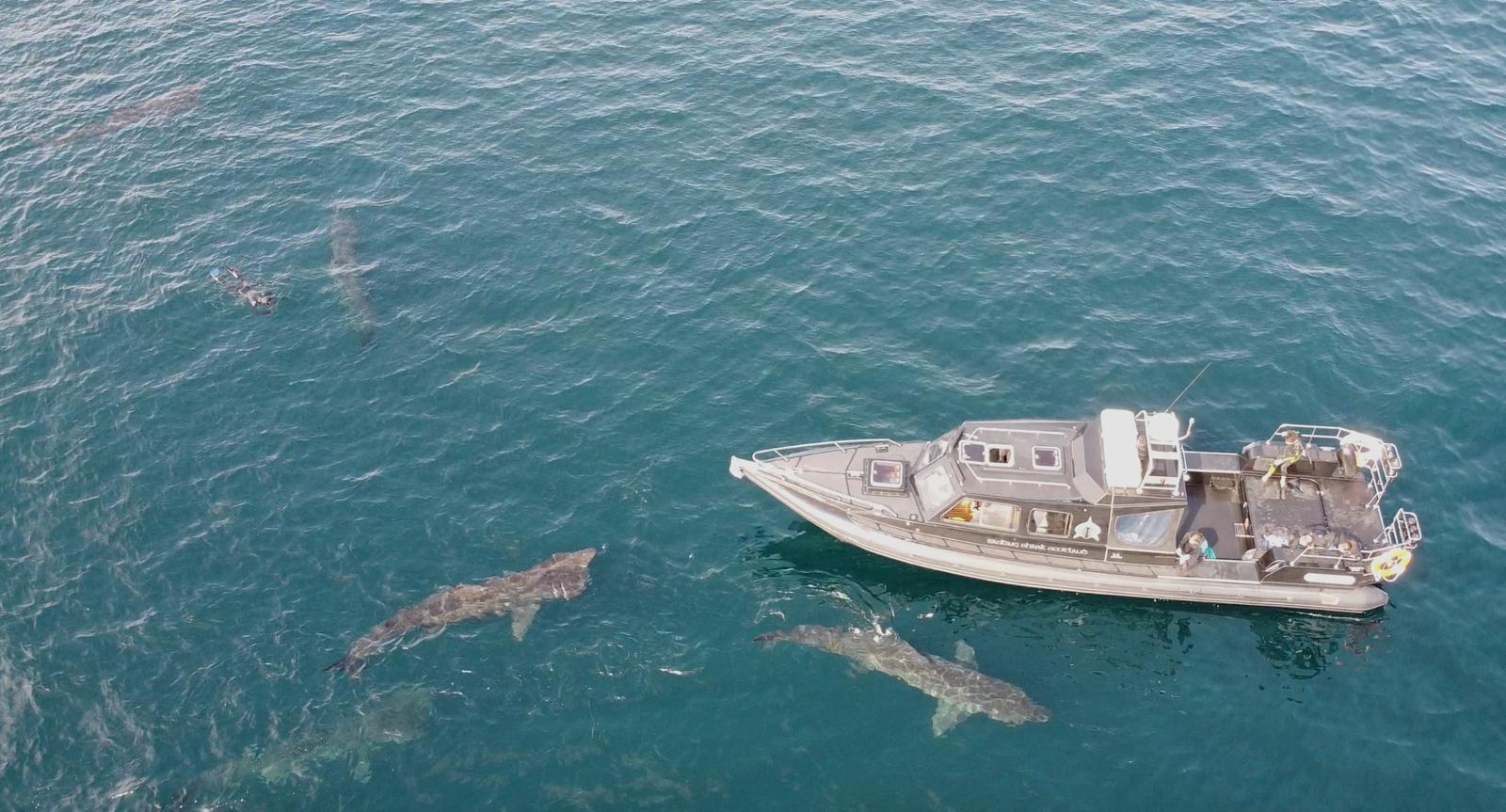
Although she was certainly startled to see a dead shark on her walk, as anyone would be, once McCall saw that it was a basking shark, she was slightly less shocked.
That’s because basking sharks are actually extremely common in the waters around Ayrshire, Scotland. There are even tours for visitors and residents alike to head out to sea to view the many basking sharks that live there.
Basking Sharks Are Really Gentle Giants
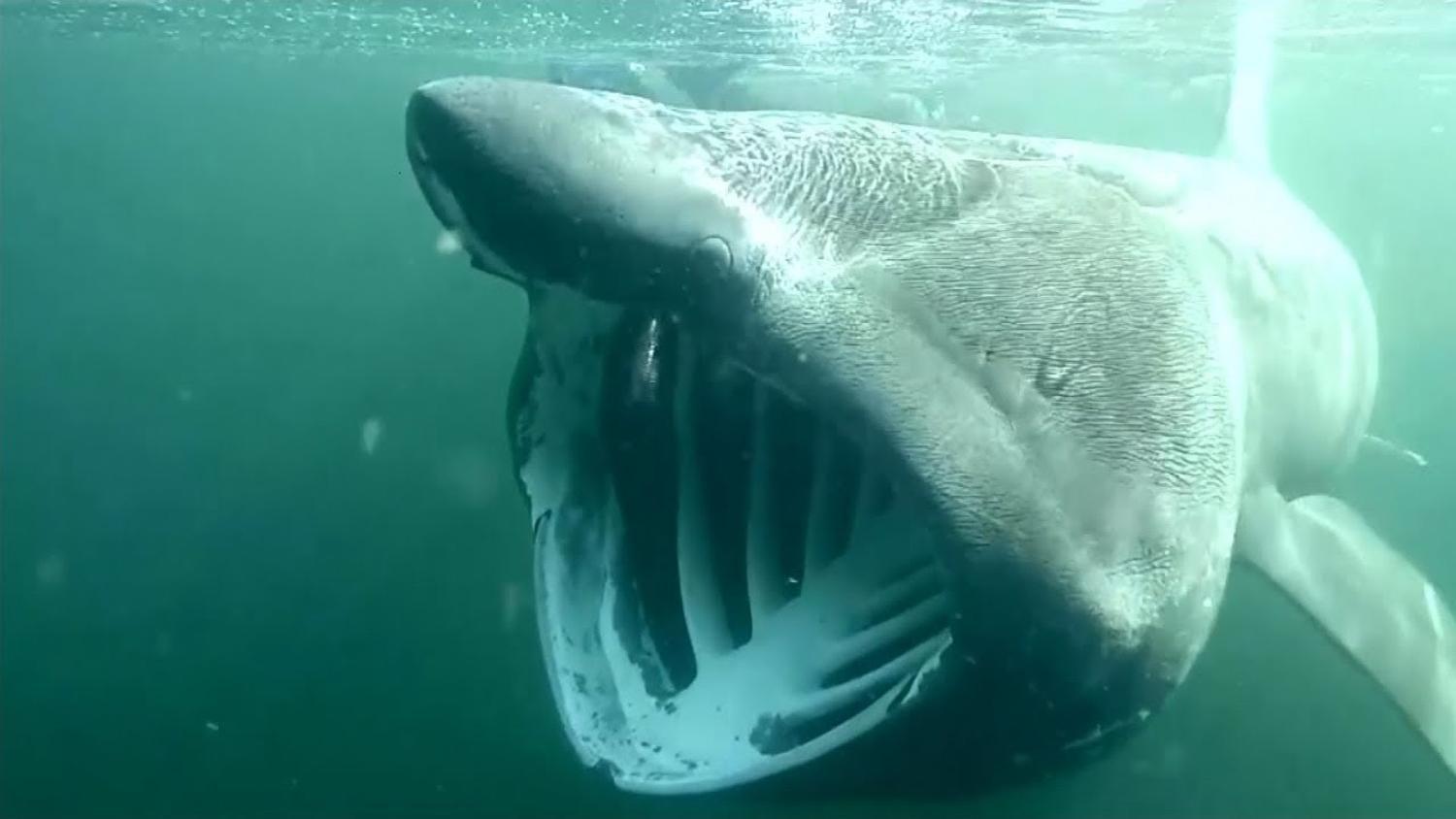
Even though they are technically sharks, basking sharks pose no threat to humans because they have no teeth whatsoever.
Basking sharks are gentle giants that feed on plankton and are known to be friendly to both boats and divers. However, it’s still important that humans keep their distance for the sharks’ well-being.
One Basking Shark Left Stranded on the Beach
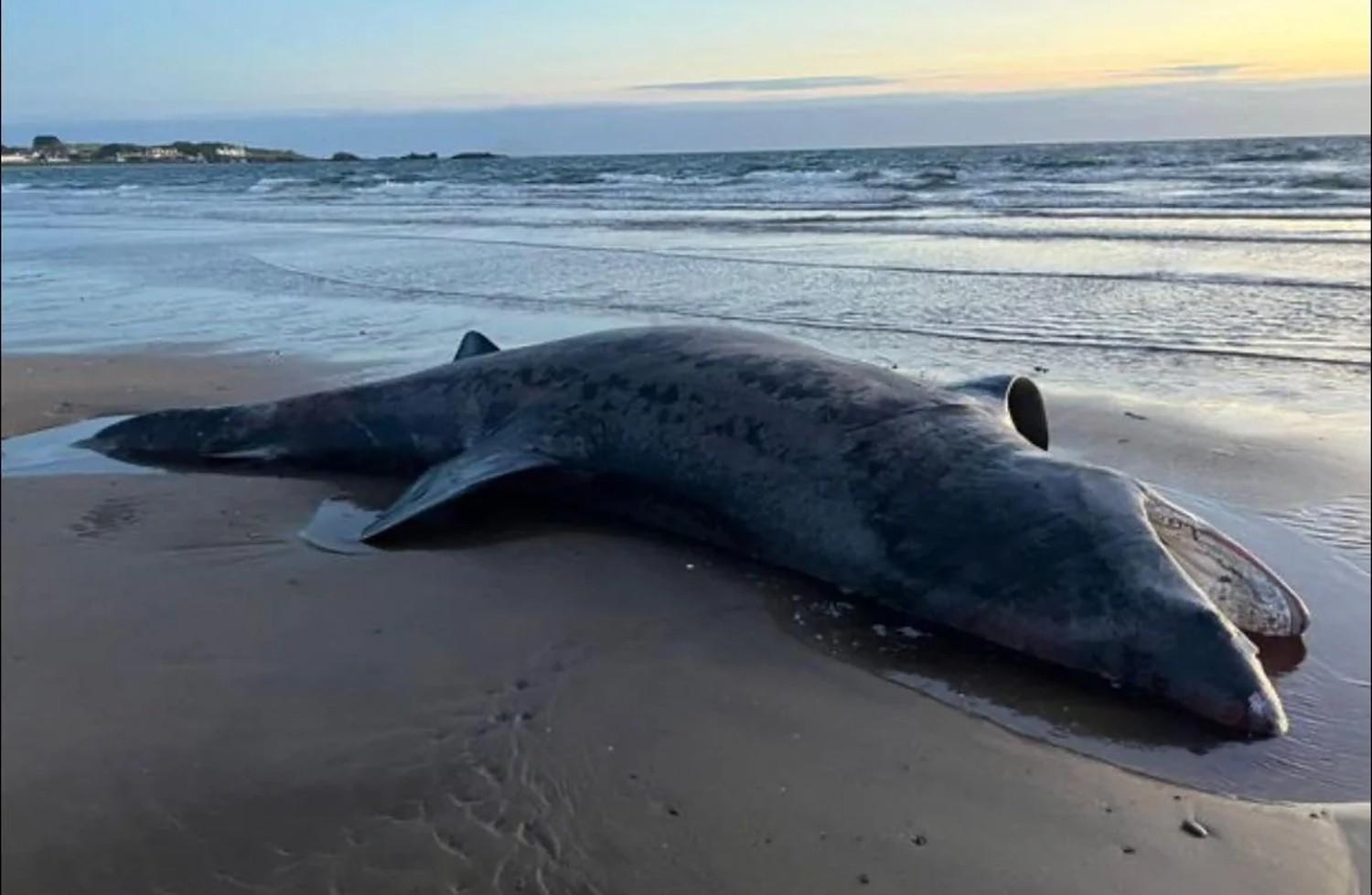
Basking sharks are even a protected species in Scotland as their numbers are slowly decreasing worldwide. But sadly, there is now one less basking shark in the world.
McCall reported, “After the tide went out, we could see the full beautiful creature. [It was] very sad.” That’s when she decided it was time to call for help.
Calling the Scottish Marine Animal Stranding Scheme for Help

McCall reached out to both the British Divers Marine Life Rescue (BDMLR) and the Scottish Marine Animal Stranding Scheme (SMASS) to remove the dead shark from the beach.
Members of both organizations arrived quickly, but then they had to figure out how to actually remove the 24-foot, 1,000-pound animal from the sandy beach.
The Machines Worked Together to Remove the Dead Shark
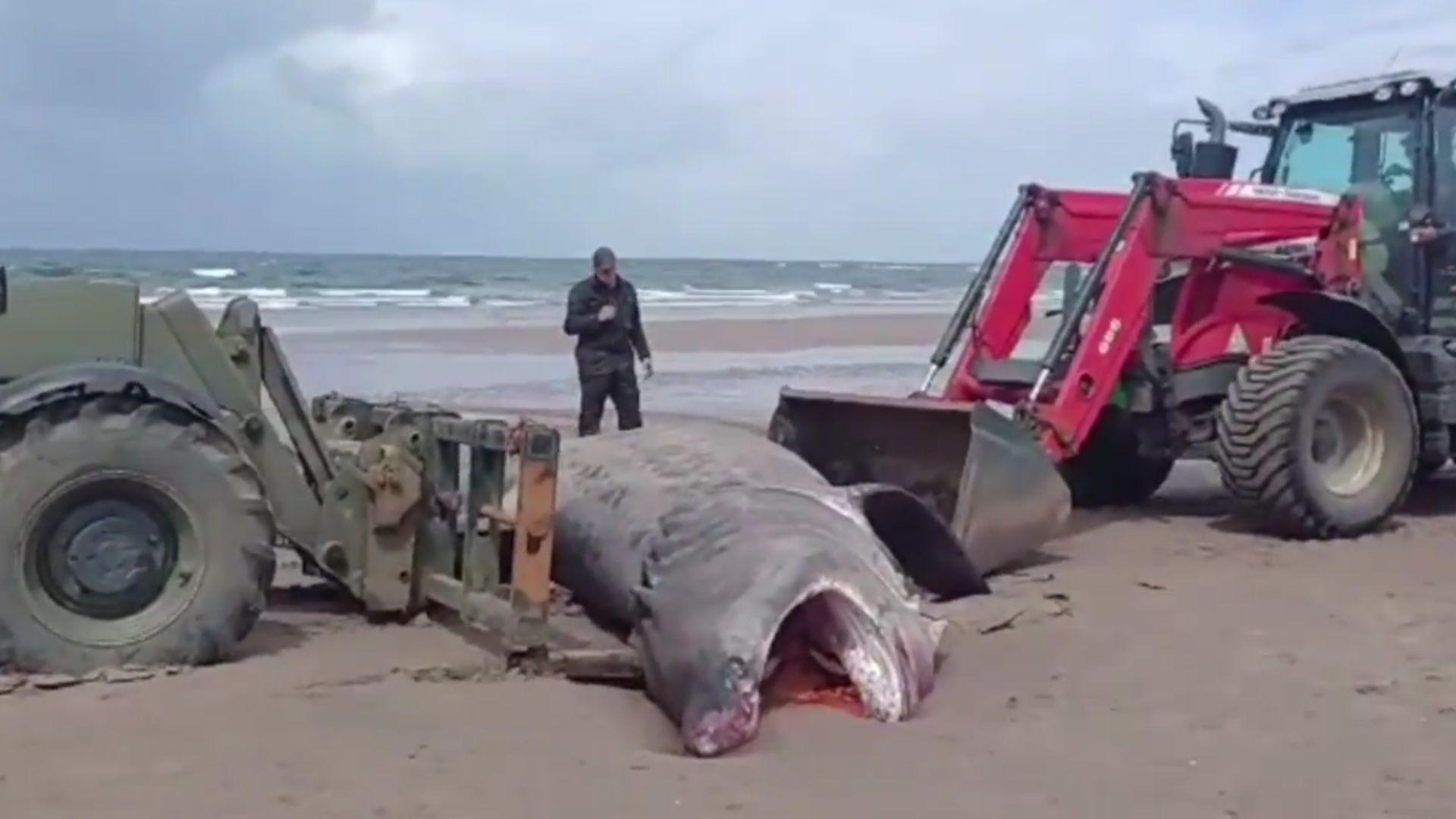
While the removal was anything but simple, they were able to finally lift the carcass of the basking shark with the assistance of three separate pieces of heavy machinery.
The first step was to load the 4.5-ton shark onto the forklift’s prongs, so onlookers watched as the bulldozer gently pushed it into place.
Lifting a 1,000 Pound Shark 10-Feet in the Air
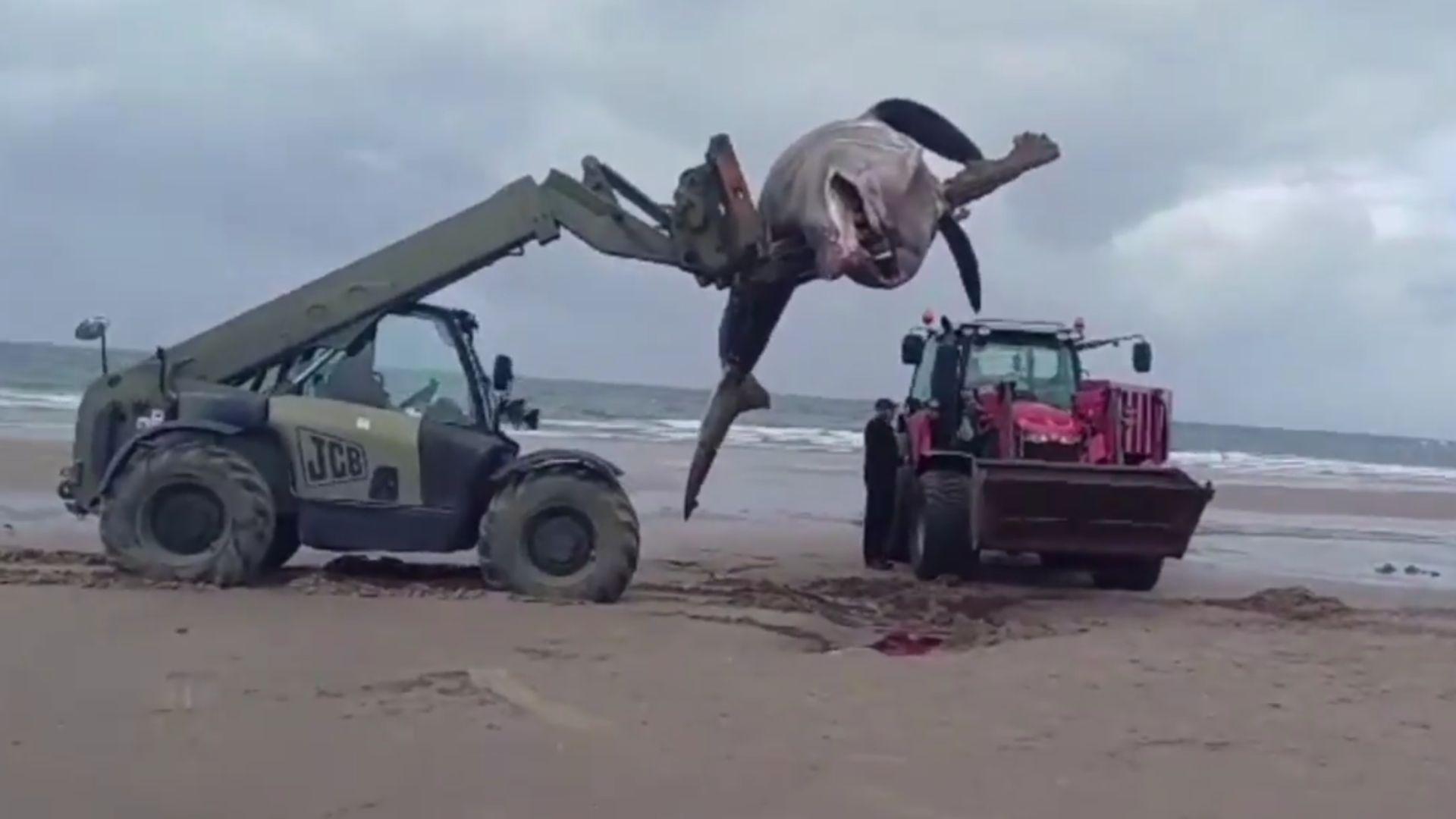
Then, once situated properly on the prongs, the forklift driver lifted the 1,000-pound shark high into the air. Onlookers reported that the entire forklift was shaking with the effort.
Instead of continuing this treacherous journey, the forklift carried the shark for only a few meters before releasing it into the back of a large truck built to hold several tons of weight at a time.
Shedding Light on a Much Bigger Issue
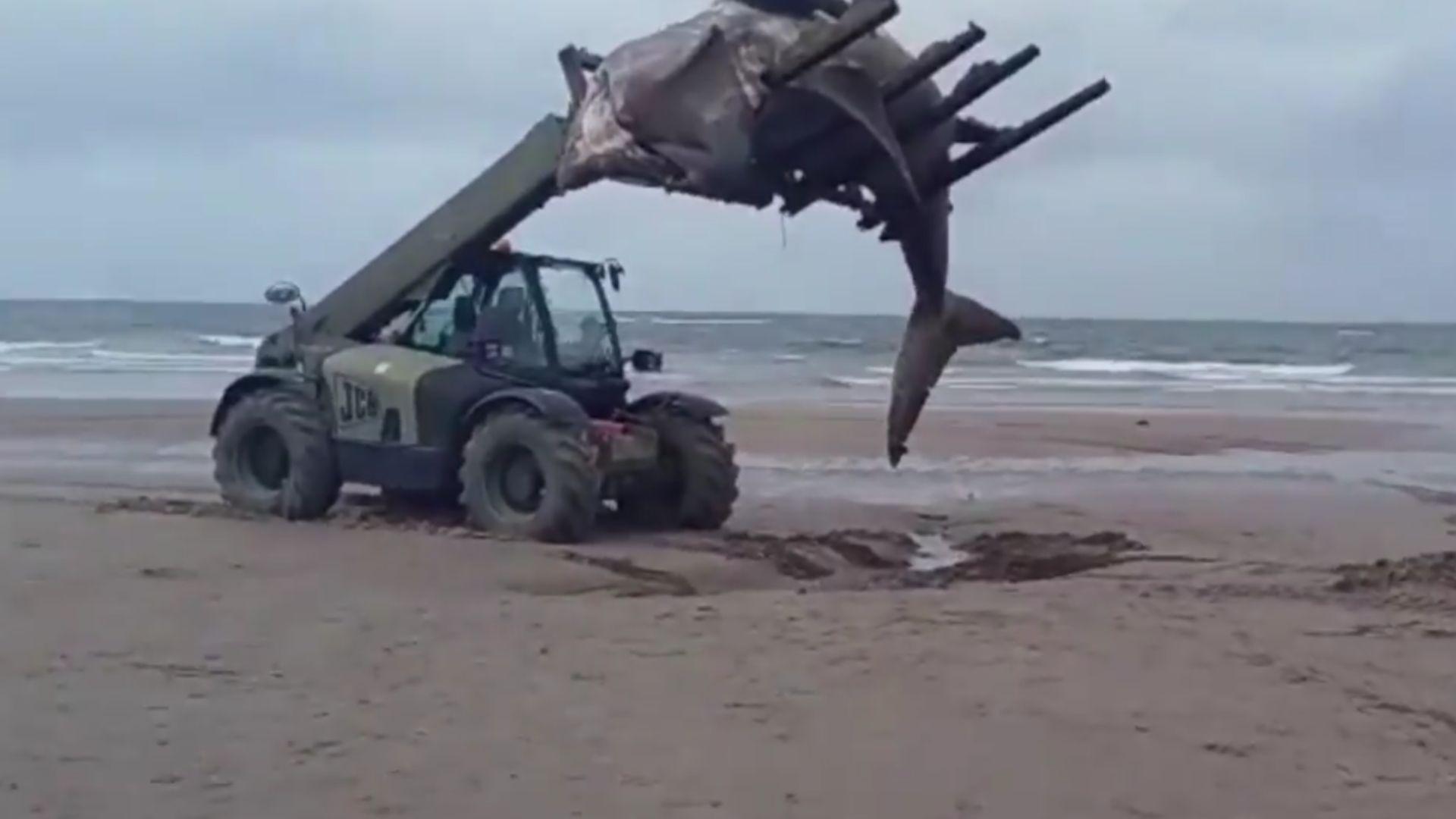
The story of the 24-foot shark found washed ashore in Scotland is certainly a sad story in and of itself, but it also sheds light on a much larger problem plaguing our planet.
This shark, like millions of other members of the ocean ecosystem, died not because of the old age of a natural predator but because of human mistakes.
Ocean Pollution Is Killing Marine Life
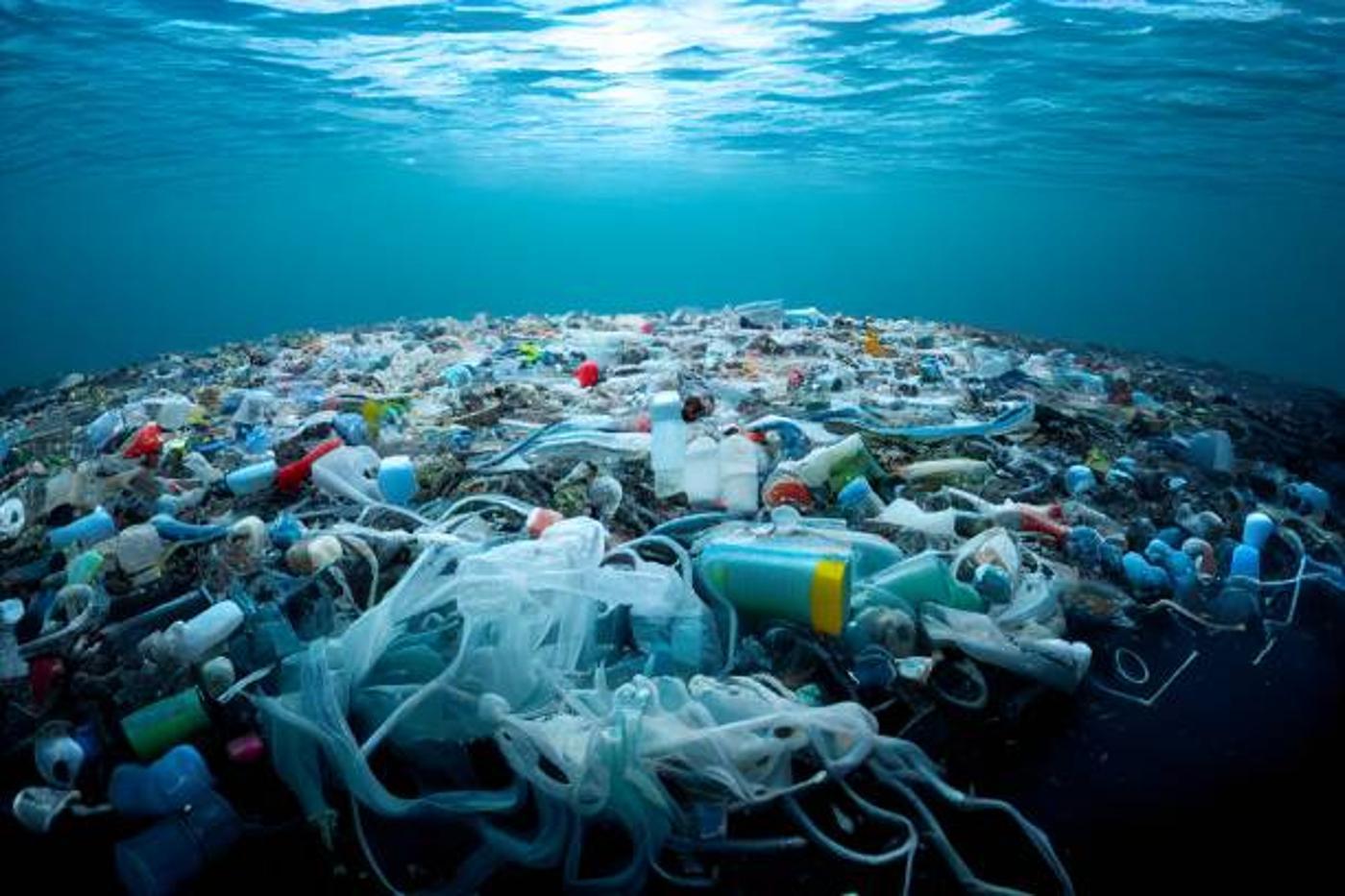
The basking shark in Scotland died because a rope was wrapped around its neck, which was left in the ocean by human beings.
It’s estimated that an almost unbelievable 13 million metric tons of pollution end up in the world’s oceans every single year. This pollution has already had a significant effect on the world’s marine life: reports say 267 species, including 86% of all sea turtles, 43% of all marine mammals, and 44% of seabirds, have been negatively affected by ocean pollution.
Marine Species Are Necessary to the Survival of Our Planet
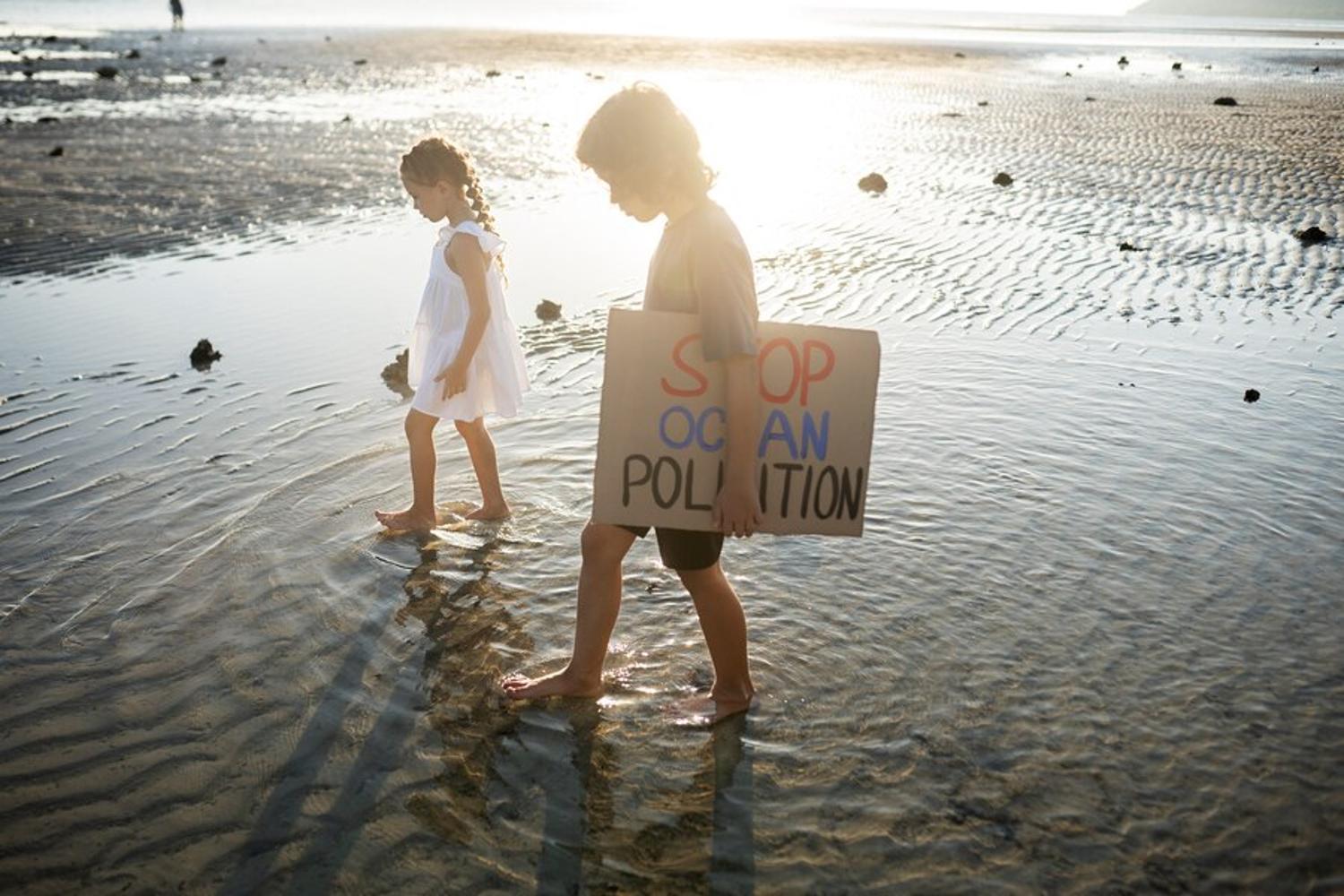
Many people don’t realize that the health of the ocean’s species is vital to the success of the entire planet. If more marine species die and the ocean’s biodiversity suffers, the already pressing side effects of climate change could become much worse.
So, while the shark that washed up in Scotland is just one animal, it reiterates yet again the need for change. If pollution doesn’t stop soon, the world will undoubtedly crumble below our feet.








































